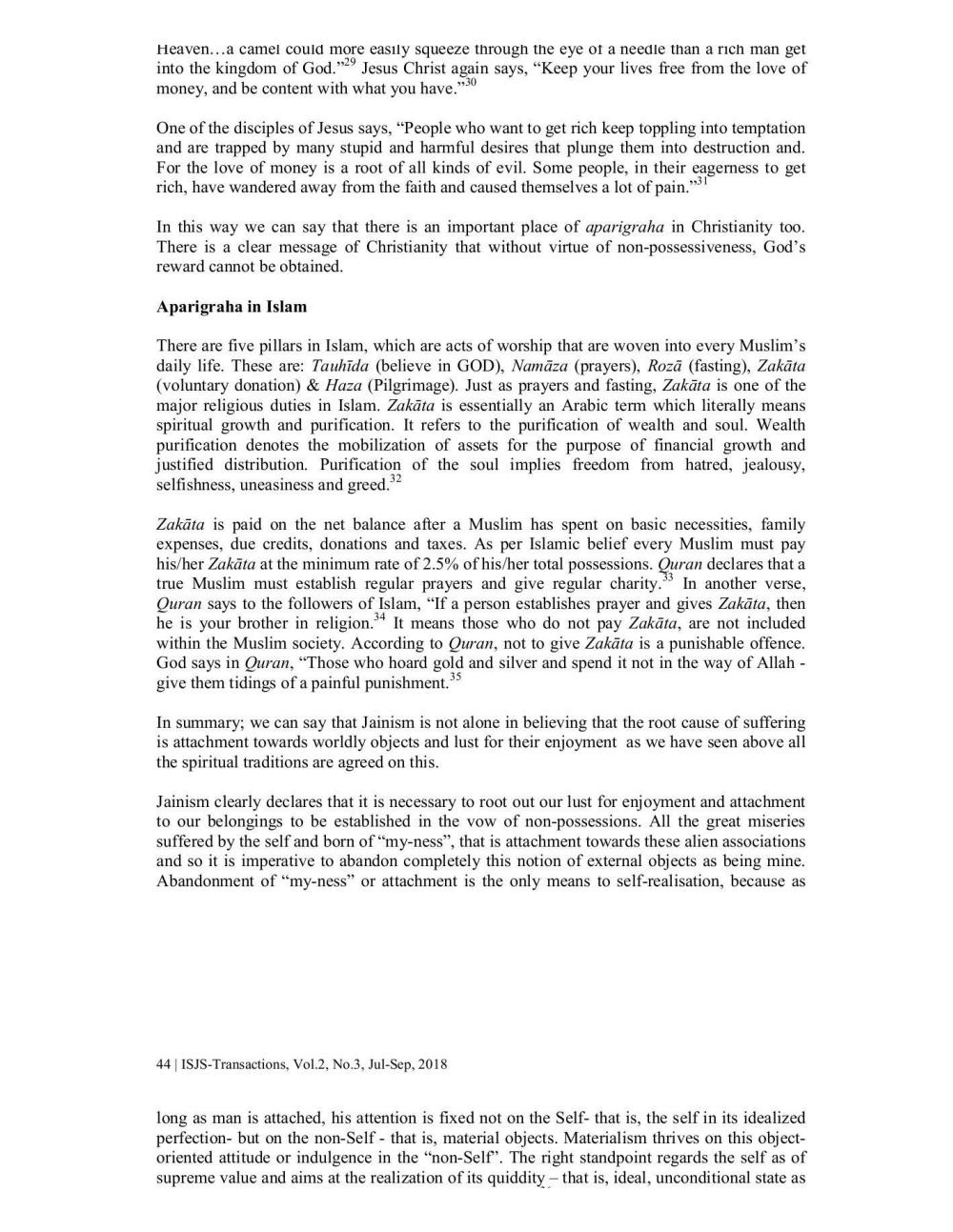________________
Heaven...a camel could more easily squeeze through the eye of a needle than a rich man get into the kingdom of God."-29 Jesus Christ again says, "Keep your lives free from the love of money, and be content with what you have.".30
One of the disciples of Jesus says, "People who want to get rich keep toppling into temptation and are trapped by many stupid and harmful desires that plunge them into destruction and. For the love of money is a root of all kinds of evil. Some people, in their eagerness to get rich, have wandered away from the faith and caused themselves a lot of pain.")
In this way we can say that there is an important place of aparigraha in Christianity too. There is a clear message of Christianity that without virtue of non-possessiveness, God's reward cannot be obtained.
Aparigraha in Islam
There are five pillars in Islam, which are acts of worship that are woven into every Muslim's daily life. These are: Tauhīda (believe in GOD), Namāza (prayers), Rozā (fasting), Zakāta (voluntary donation) & Haza (Pilgrimage). Just as prayers and fasting, Zakāta is one of the major religious duties in Islam. Zakāta is essentially an Arabic term which literally means spiritual growth and purification. It refers to the purification of wealth and soul. Wealth purification denotes the mobilization of assets for the purpose of financial growth and justified distribution. Purification of the soul implies freedom from hatred, jealousy, selfishness, uneasiness and greed."
Zakāta is paid on the net balance after a Muslim has spent on basic necessities, family expenses, due credits, donations and taxes. As per Islamic belief every Muslim must pay his/her Zakāta at the minimum rate of 2.5% of his/her total possessions. Quran declares that a true Muslim must establish regular prayers and give regular charity." In another verse, Quran says to the followers of Islam, "If a person establishes prayer and gives Zakāta, then he is your brother in religion. It means those who do not pay Zakāta, are not included within the Muslim society. According to Quran, not to give Zakāta is a punishable offence. God says in Quran, "Those who hoard gold and silver and spend it not in the way of Allahgive them tidings of a painful punishment."
In summary, we can say that Jainism is not alone in believing that the root cause of suffering is attachment towards worldly objects and lust for their enjoyment as we have seen above all the spiritual traditions are agreed on this.
Jainism clearly declares that it is necessary to root out our lust for enjoyment and attachment to our belongings to be established in the vow of non-possessions. All the great miseries suffered by the self and born of 'my-ness", that is attachment towards these alien associations and so it is imperative to abandon completely this notion of external objects as being mine. Abandonment of "my-ness" or attachment is the only means to self-realisation, because as
44 ISJS-Transactions, Vol.2, No.3, Jul-Sep, 2018
long as man is attached, his attention is fixed not on the Self-that is, the self in its idealized perfection- but on the non-Self - that is, material objects. Materialism thrives on this objectoriented attitude or indulgence in the "non-Self". The right standpoint regards the self as of supreme value and aims at the realization of its quiddity - that is, ideal, unconditional state as




